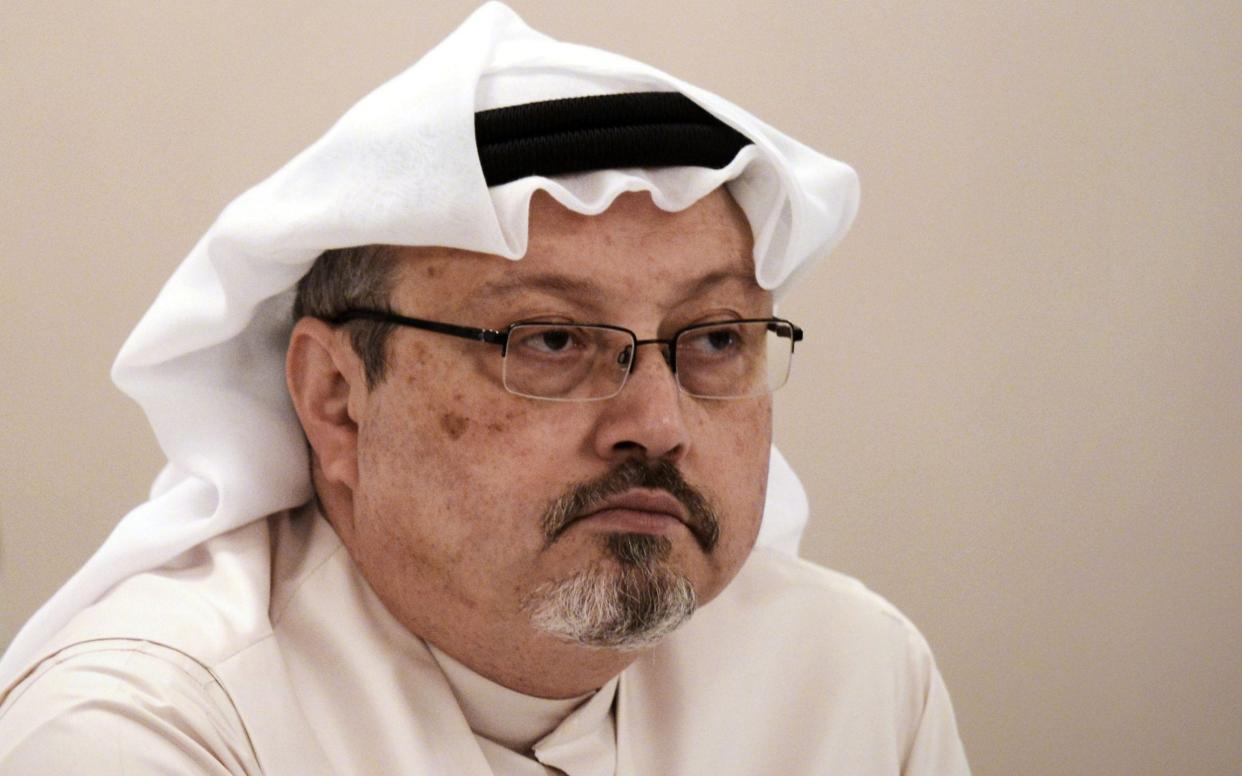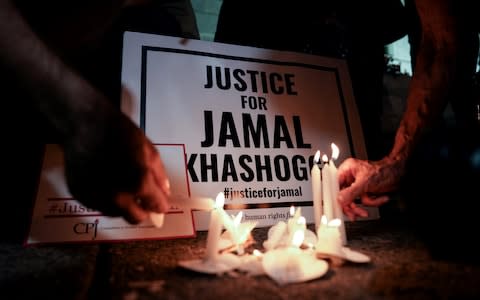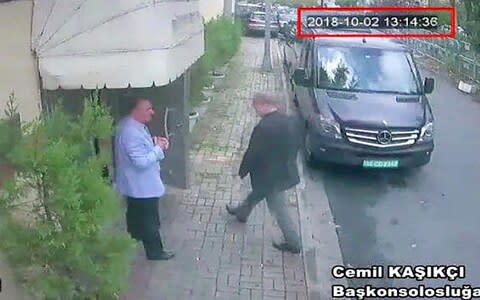Jamal Khashoggi: Five sentenced to death in Saudi Arabia over journalist's murder

Saudi Arabia has sentenced five men to death for the murder of dissident journalist Jamal Khashoggi in Istanbul last year.
However, the two most senior officials implicated in the brutal killing were exonerated because of a lack of evidence, prompting rights groups to criticise the trial as a “whitewash”.
Mr Khashoggi, a columnist for the Washington Post, was lured to the Saudi embassy in Istanbul to obtain paperwork to marry his Turkish fiancee. Inside he was confronted by Saudi agents and was kidnapped, tortured, murdered and dismembered. His remains have not been found.

The crime has battered the Kingdom’s reputation, with a leaked CIA assessment from last year claiming “medium to high confidence” that Crown Prince Mohammed bin Salman personally ordered the slaying.
Announcing the verdict of the secret trial in Riyadh on Monday, deputy public prosecutor Shalaan al-Shalaan said that three men had also received a total of 24 years in prison for “their role in covering up this crime”. None of the 11 who went on trial were named.
The prosecutor maintained that the operation had not intended to kill Mr Khashoggi, who had been critical of the prince and repression in Saudi Arabia.
The Trump administration placed sanctions on 17 individuals in connection with the murder of Mr Khashoggi. Among them was Saud al Qathani, a top adviser to the crown prince who last November the prosecutor said had discussed the activities of Mr Khashoggi with the team that murdered him before he entered the consulate.
Al Qathani was not tried due to a lack of evidence, Shalaan said on Monday.
Working in coordination with al Qathani, deputy intelligence chief, Ahmed al-Asiri was initially charged for ordering the repatriation of Mr Khashoggi from Turkey. He was released after the trial due to insufficient evidence.

A report by a United Nations investigator said that Saudi authorities participated in the destruction of evidence and deemed it an extrajudicial killing.
“Bottom line: the hit-men are guilty, sentenced to death. The masterminds not only walk free. They have barely been touched by the investigation and the trial,” the UN’s Special Rapporteur Agnes Callamard wrote on Twitter.
Three of the men on trial were released because of a lack of evidence. The five sentenced to death will likely be beheaded in public if their sentence is agreed by a higher court.
All of the verdicts can be appealed.
“The killing of Jamal Khashoggi was a terrible crime. Mr Khashoggi’s family deserve to see justice done for his brutal murder,” Foreign Secretary Dominic Raab said. “Saudia Arabia must ensure all of those responsible are held to account and that such an atrocity can never happen again.”
Oxfam today calculated that the value of UK arms licensed to the Saudi-led coalition waging war on Yemen is up almost half in the five years since the Arms Trade Treaty came into place.
Prince Mohammed has been pushing in recent years to present a modernised and more tolerant version of the conservative state with a spate of sweeping social reforms. On the weekend before the verdict was released, Riyadh held Saudi Arabia’s first big-budget music festival, attracting pop stars including David Guetta and a range of Instagram influencers. However, foreign attendees were criticised for helping whitewash the Kingdom’s reputation, with many paid to write glowing write-ups of the event online.
Mr Khashoggi’s editor at the Washington Post, Karen Attiah, wrote “the social changes in Saudi Arabia are indeed remarkable. Jamal Khashoggi was supportive of the changes. Until regime agents killed him. Now the regime has been working overtime… to rehabilitate its image, partly by using western influencers.”

